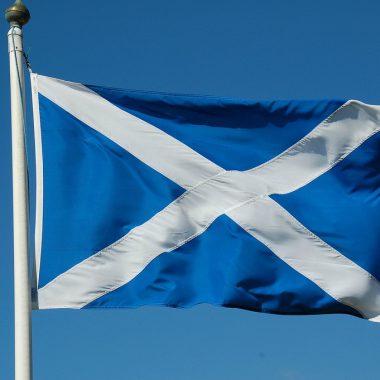No GP partner in Scotland will earn less than £80,000, as well as measures to reduce workload and protect partners from risk as part of a ‘historic’ new contract in Scotland.
Meanwhile, almost two thirds of GP practices will see their overall funding increase based on a proposed new funding formula.
Around a fifth of GP partners should see a pay rise under the proposals that will also see a £23m funding injection into the GMS contract and all practice expenses – including staff and premises – being funded.
Under the agreement, there is also a commitment that no GP will own their own premises by 2043, while there will be extra funding to ‘significantly reduce the risks to GP partners from providing their own premises making it easier to attract new partners’.
The chair of the BMA’s Scottish GP Committee said that the new contract ‘offers income stability and reduced business risk to individuals’.
GPs will be able to vote on whether to accept the new contract following a special conference for LMCs on 1 December.
Pulse has already reported on a number of the measures listed in the contract announcement, including:
- GPs working as the head of a multi-disciplinary team to work with GP practices to provide direct access to services for patients, allowing GPs to concentrate on being expert medical generalists;
- GPs having access to NHS-run ‘treatment rooms’, which would carry out any blood tests, dressing changes or procedural tasks requested by either secondary care or the GP themselves;
- The transfer of some additional services, such as responsibility for delivering vaccinations, to health boards, without loss of funding.
Also announced in the contract is a two-stage reform of the funding formula. As part of ‘phase 1’, the formula will be changed to give more weight to those practices that look after elderly patients, and those in deprived neighbourhoods.
No practice will lose out as part of this phase. The contract states: ‘A new practice income guarantee will operate to ensure practice income stability. The new funding formula will be accompanied by an additional £23 million investment in GMS to improve services for patients where workload is highest.’
In April 2019, the Government will guarantee that no GP partner earns less than £80,000 per year.
The contract agreement states: ’The contract offer proposes to introduce a new minimum earnings expectation to ensure no GP partner earns less than £80,430 (including pension contributions) NHS income for a whole-time equivalent post from April 2019. Evidence indicates this will benefit approximately one fifth of GP partners in Scotland.’
Under phase 2, due to begin in April 2020, there will be pay progession and a guaranteed income range – similar to that of consultants – and that all expenses will be covered.
There will be a ballot of all GPs before this is implemented, however.
GPC Scotland chair Dr Alan McDevitt said: ’Our aim in these negotiations has been to make general practice sustainable for the future. It was clear that significant change was required to address the increasing workload pressures that colleagues were facing.
’Practices have been struggling to recruit to vacant positions and we have started to see this impact on patient care, with some practices closing their patient lists, handing back responsibility to the health board or in extreme cases having to close altogether.
‘This contract offers solutions to the pressures faced by general practice. By expanding the primary care team and working with integration authorities to improve patient access to services delivered by other professionals, such as, practice nurses, pharmacists and physiotherapists, GPs can have more time to concentrate on being GPs.’
He also told Pulse: ’There is a new formula which gives a higher weight to workload, so market force factors are out, rurality is out, and it will be based on deprived patients and elderly patients. 63% of practices gain from that formula change but no one drops as a result of that.’








